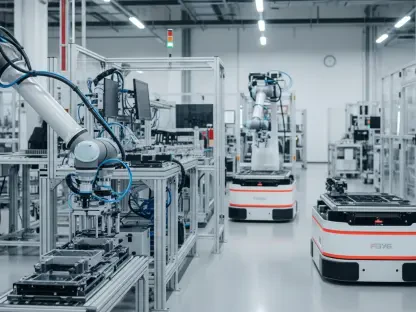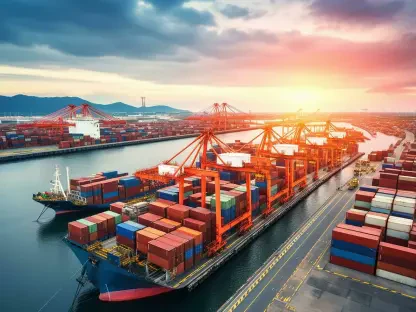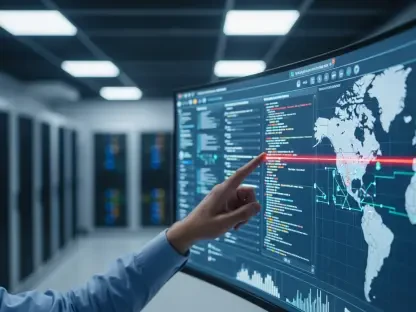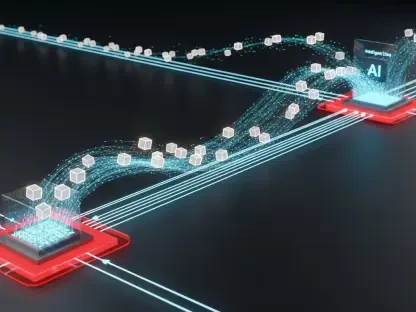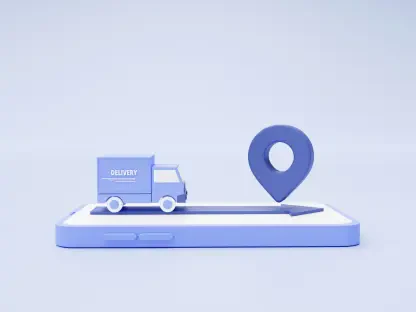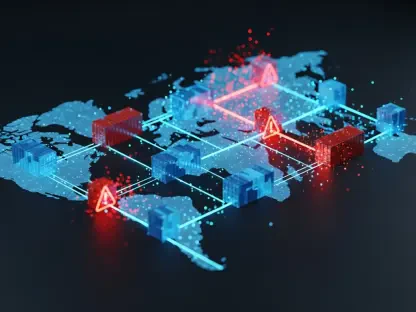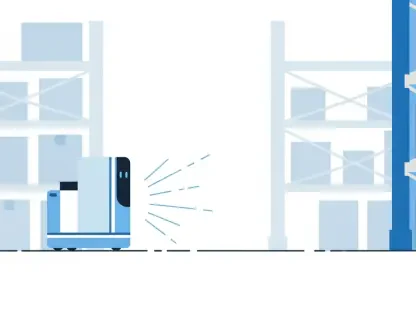DHL’s recently concluded Fast Forward Challenge: Sustainable Solutions Asia Pacific edition has spotlighted TUX Mobility, a Dutch-Indian startup, for its groundbreaking innovation in eco-friendly logistics—a self-charging solar-powered, light electric cargo vehicle. This award underscores DHL’s unwavering commitment to environmental sustainability, especially within the logistics and supply chain industry. The competition, held in Singapore, is an integral part of DHL’s wider Era of Sustainable Logistics initiative aimed at addressing pressing sustainability issues in the sector.
The Significance of Sustainable Logistics in Today’s World
Rising Demand for Eco-friendly Solutions
The expansion of e-commerce and on-demand delivery services has intensified the necessity for sustainable logistics solutions. Rapid urbanization and increased consumer expectations for quick deliveries have contributed to the growth of last-mile delivery demand. Traditional internal combustion engine vehicles are no longer viable given the urgent need to reduce carbon emissions and combat climate change. The pivotal role of innovative solutions like TUX Mobility’s solar-powered cargo vehicle in addressing these challenges cannot be overstated.
For the logistics industry, finding greener last-mile delivery options is crucial not only for meeting environmental targets but also for staying competitive in a market that increasingly values sustainability. The introduction of TUX Mobility’s self-charging solar-powered cargo vehicle offers a solid alternative to conventional vehicles, eliminating the reliance on fossil fuels. The vehicle’s ability to harness solar power offers a renewable energy solution that promises to cut down on operational costs while reducing the carbon footprint, making it a viable option for large-scale logistical operations.
DHL’s Commitment to Environmental Sustainability
DHL’s Chief Commercial Officer, Katja Busch, emphasizes the importance of integrating sustainable practices into the logistics industry. By connecting innovative startups with practical, scalable solutions, DHL aims to accelerate the transition to a lower-carbon logistics landscape. This initiative aligns with their broader business objectives and commitment to reducing carbon emissions within logistics operations, from packaging and transport services to warehouse management and overall supply chain practices.
DHL’s initiatives extend beyond mere competitions and accolades. They are integrated into the very fabric of their operations across 220 countries and territories. These sustainable practices span various aspects of their logistics framework, including the use of eco-friendly packaging solutions, optimized routing to minimize fuel consumption, and sustainable warehouse management practices. This comprehensive approach highlights how industrial giants can leverage their global reach to foster significant environmental change.
TUX Mobility’s Groundbreaking Solar-Powered Cargo Vehicle
Innovation and Environmental Impact
TUX Mobility’s solar-powered cargo vehicle is an innovation crucial to the logistics industry’s future. By harnessing solar energy, the vehicle not only underscores the potential of renewable energy in logistics but also provides a tangible solution to reducing the sector’s carbon footprint. The technology promises enhanced efficiency for last-mile deliveries, addressing the pressing need for greener alternatives to traditional delivery vehicles.
The vehicle’s ability to self-charge using solar panels is particularly noteworthy. This feature ensures that the vehicle can operate in a manner that is both environmentally friendly and efficient, reducing the need for frequent charging intervals and thereby extending the vehicle’s operational time. The solar-powered cargo vehicle also introduces an innovative approach to urban logistics, offering a compact yet powerful solution designed for dense urban environments where traditional larger vehicles are less practical.
Benefits and Future Collaborations
The victory paves the way for a collaborative pilot project between TUX Mobility and DHL in the Asia Pacific region. This partnership will enable the startup to scale its technology and refine its solutions while integrating it into DHL’s extensive global logistics network. TUX Mobility’s success highlights the importance of innovative thinking and strategic collaborations in driving forward sustainable logistics solutions.
This collaboration aims to serve as a benchmark for future projects focused on integrating renewable energy solutions in logistics. By working closely with DHL, TUX Mobility gains access to resources and expertise that can help them navigate challenges and accelerate the implementation of their technology. Moreover, DHL’s endorsement provides a level of credibility and reach that can bolster TUX Mobility’s market entry and expansion, facilitating a faster rollout of these eco-friendly vehicles across multiple markets.
Other Finalists and Their Innovations
Planet Protector’s Insulation Solutions
Besides TUX Mobility, other notable finalists include Planet Protector, a startup focusing on replacing environmentally damaging polystyrene with sheep wool insulation. This innovation caters to the need for sustainable packaging, addressing a significant environmental concern given the vast use of polystyrene in various logistics stages. Sheep wool, a natural, biodegradable material, offers better insulation properties while being less harmful to the environment, making it an excellent alternative to traditional packaging materials.
Planet Protector’s approach to using sheep wool insulation signifies an important shift towards biodegradable and sustainable materials in packaging. As polystyrene is notoriously difficult to recycle and often ends up in landfills, this new insulation solution can significantly reduce environmental impact. Furthermore, sheep wool is not only biodegradable but also highly effective as an insulator, providing a practical yet eco-friendly solution that could drive substantial change within the logistics industry.
BANF’s IoT for Vehicle Efficiency
Another finalist, BANF, an IoT startup, presented technology that uses tire sensors to optimize fuel consumption, extend tire lifespan, and enhance vehicle safety. This technology aligns with the overarching goal of reducing carbon emissions and improving the operational efficiency of logistics vehicles, further driving the shift to sustainable logistics practices. By leveraging IoT, BANF offers real-time data analytics that enable fleet managers to make informed decisions, improving route efficiency and vehicle maintenance.
BANF’s IoT solution integrates seamlessly with existing vehicle systems, providing an additional layer of monitoring that can help reduce overall operational costs. The tire sensors provide crucial data on tire pressure and temperature, alerting drivers to any anomalies that could indicate potential issues, thus improving road safety. Additionally, by optimizing fuel consumption and extending tire lifespan, this technology can contribute significantly to reducing waste and conserving resources, making it an invaluable tool for achieving sustainable logistics operations.
Global Outreach and Diverse Innovation
Submissions Focus and Scope
The competition attracted diverse submissions from global innovators, startups, and businesses, each presenting unique solutions tailored to the logistics industry’s sustainability challenges. Ranging from sustainable packaging and container solutions to initiatives targeting the carbon footprint reduction of transport services, the inclusive nature of the competition highlights the widespread commitment to environmental responsibility within the logistics sector.
This diversity in submissions underscores a broad recognition of the critical need to address environmental issues in logistics. Innovative approaches included not only technological advancements but also reimagined business models and practices that embrace sustainability. This varied array of solutions illustrates the multidimensional nature of the challenge, requiring comprehensive and collaborative efforts to create impactful and enduring change in the logistics landscape.
Categories of Innovation
About 28% of the submissions emphasized more sustainable packaging and container solutions, highlighting the industry’s need to mitigate plastic waste. Another 22% focused on reducing the carbon footprint of transport services, while 15% addressed sustainability within the built environment. These varied focus areas underscore the comprehensive approach needed to tackle sustainability challenges across the logistic supply chain effectively.
Each category of innovation reflects a different facet of the logistics industry where sustainable practices can be implemented. Sustainable packaging solutions are essential for reducing plastic waste and its environmental impact. Reducing the carbon footprint of transport services directly addresses one of the industry’s most significant contributors to greenhouse gas emissions. Sustainability in the built environment, including warehouses and distribution centers, focuses on energy-efficient designs and operations. Together, these categories highlight the need for a holistic approach to creating a more sustainable logistics industry.
DHL’s Broader Vision and Initiatives
Era of Sustainable Logistics Initiative
DHL’s Fast Forward Challenge is part of their Era of Sustainable Logistics initiative within the Asia Pacific Chapter. This broader initiative aims to foster viable, scalable solutions that can significantly enhance the logistics and supply chain sector’s sustainability performance. By supporting startups like TUX Mobility, Planet Protector, and BANF, DHL demonstrates its commitment to leading the transition toward greener logistics practices.
The Era of Sustainable Logistics encompasses various programs and strategies aimed at minimizing the environmental impact of logistics operations. These include adopting alternative fuels, enhancing energy efficiency in facilities, and promoting circular economy practices. The initiative also involves educating and collaborating with customers and partners to develop and implement innovative solutions that drive sustainability across the supply chain. DHL’s leadership in this area sets a precedent for other industry players to follow, underscoring the importance of collective efforts in achieving broader sustainability goals.
Long-term Goals and Workforce Involvement
With a workforce of approximately 395,000 employees operating in over 220 countries and territories, DHL is well-positioned to implement and scale sustainable logistics solutions globally. The company’s goal to achieve net-zero emissions logistics by 2050 reflects a long-term commitment to environmental responsibility, aligning with global sustainability targets and societal contributions. This ambitious goal requires coordinated efforts across all levels of the organization, from executive leadership to frontline employees.
DHL recognizes the critical role that its diverse and extensive workforce plays in driving sustainability initiatives. By empowering employees with the necessary tools, knowledge, and resources, DHL fosters a culture of innovation and environmental stewardship. Continuous training programs, sustainability-focused projects, and employee engagement campaigns ensure that sustainability is embedded in the company’s daily operations. This holistic approach not only supports DHL’s sustainability objectives but also contributes to a broader societal shift towards more responsible and eco-friendly business practices.
Collaborative Efforts and Innovation
Importance of Strategic Partnerships
The collaboration between DHL and innovative startups is crucial to realizing and accelerating sustainable logistics solutions. By fostering innovation and collaboration, DHL aims to create a positive impact not only on their operations but also on the global logistics landscape. This collaborative approach is essential in addressing the complex challenges posed by climate change and advancing towards a sustainable future.
Strategic partnerships allow for the pooling of resources, expertise, and technologies, which are crucial for developing scalable and impactful solutions. Such collaborations facilitate knowledge exchange and drive synergies that can lead to breakthrough innovations in logistics. By working together, DHL and its partners can develop more efficient and sustainable practices, ultimately setting new standards for the industry and inspiring other organizations to follow suit.
Fostering a Greener Industry
DHL recently hosted the Fast Forward Challenge: Sustainable Solutions Asia Pacific edition, where TUX Mobility, a Dutch-Indian startup, took center stage for its innovative contribution to eco-friendly logistics. They introduced a self-charging, solar-powered, light electric cargo vehicle, a remarkable step forward in green logistics. This achievement highlights DHL’s firm commitment to environmental sustainability, particularly within the logistics and supply chain sector. Held in Singapore, the competition forms a crucial part of DHL’s broader Era of Sustainable Logistics initiative, which aims to tackle urgent sustainability challenges faced by the industry. TUX Mobility’s vehicle not only reduces carbon emissions but also enhances energy efficiency, representing a significant leap in sustainable transportation. By recognizing and rewarding such innovations, DHL is paving the way for more eco-friendly solutions and encouraging other companies to focus on sustainability. This event underscores the importance of integrating green technologies into logistics, setting a powerful example for the industry and promoting a more sustainable future.


